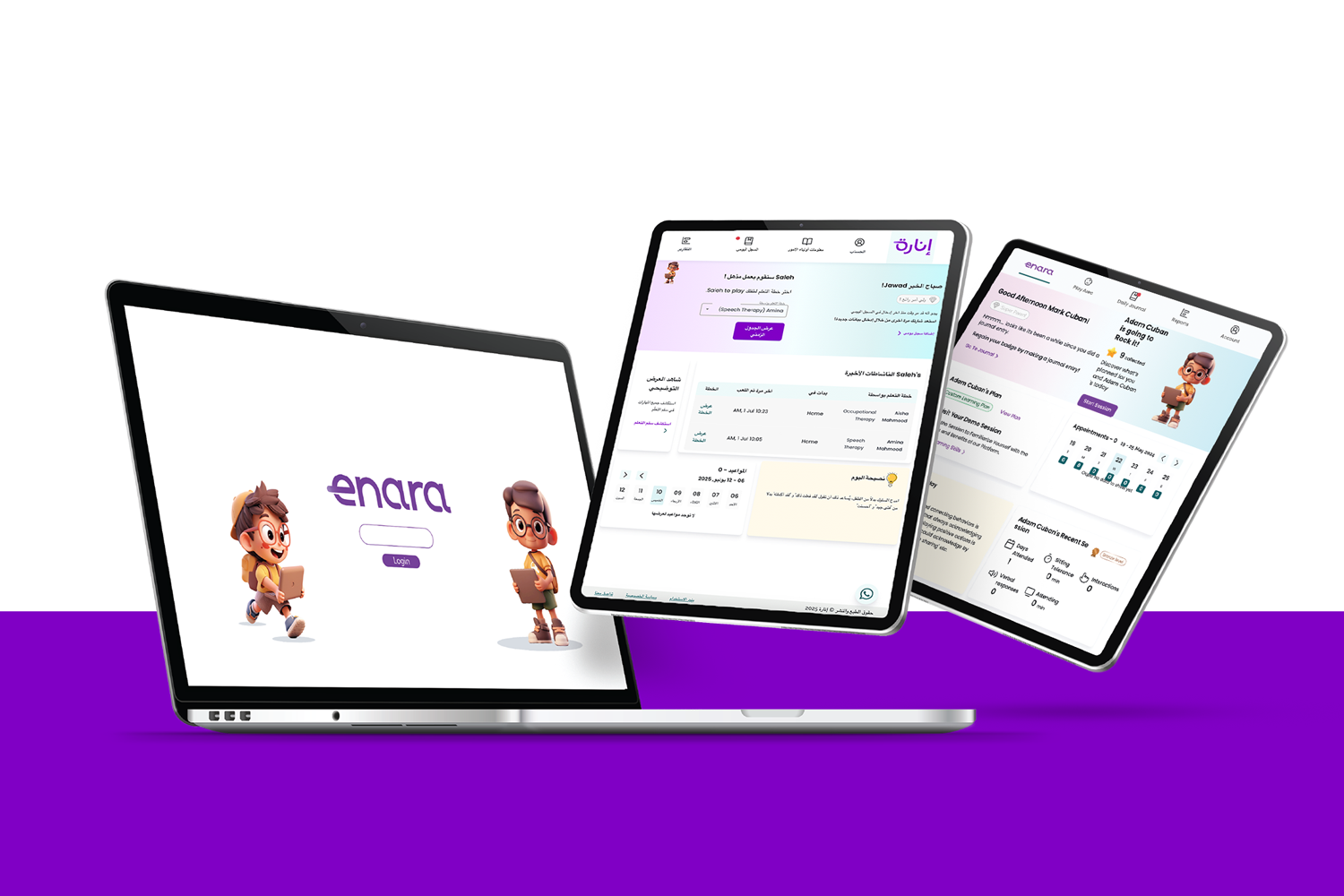If you’re a therapist or run a therapy centre, you already know this: early intervention matters. A lot. In fact, it might be the most important thing you’ll do for a child with learning challenges.
But here’s the catch. Despite knowing how vital early support is, you’re often battling on three fronts:
-
Limited therapy hours,
-
Inconsistent home practice
-
And a progress-tracking system that leans more on hope than hard data.
That’s where Enara comes in. —a friendly, AI-powered platform designed not to replace you, but to help you do more of what matters, without burning out.
Why Early Intervention Needs a Tech Sidekick
Neuroplasticity sounds like a mouthful, but it simply means the brain’s amazing ability to rewire and adapt itself. It’s at its peak between birth and five years old—a period when a child’s brain is like a sponge, soaking up everything, learning new tricks, and reshaping itself to keep up with whatever life throws its way.
That’s why early intervention is so crucial for kids with autism, ADHD, speech delays, or other developmental bumps in the road.
But here’s the thing: consistency is everything. A couple of therapy hours a week won’t do much good if the other five days are spent forgetting what they learned or glued to cat videos.
These days, artificial intelligence is stepping up to help. It can tailor learning to each child’s needs, make education more accessible, and help kids develop important social and emotional skills. From assistive tech to virtual reality, AI is quietly changing the way special education works.
That’s where Enara gets it right.
1. Therapy That Doesn’t Clock Out at 4 PM
Most children don’t get the recommended hours of therapy each week. And for many families, it’s simply not possible to provide more. The rest of the time, progress tends to stall, like a plant left without water. It needs steady care to keep growing. That’s where Enara makes a difference.
It gives you tools to assign personalized, gamified activities that kids can do at home. Not the kind that involve mindless screen-tapping, but real skill-building tied to your clinical goals.
Better still, Enara tracks it all. So instead of vague reports like, “He sort of did it, I think?” you get data: What was practiced, how often, and whether it’s working.
2. Data You Might Actually Want to Look At
Wouldn’t it be handy to know if a child is actually using a skill outside your clinic, not just performing it perfectly for you? Enara collects the kind of data you wish you had, such as:
-
Movement patterns
-
Eye contact
-
Speech attempts
-
Time spent on tasks
It packages all this into visual dashboards and reports you can use to refine therapy plans.
3. The Automation You Didn’t Know You Needed
Therapists spend an unhealthy amount of time assigning tasks, reminding parents, logging data, and generally wrangling paperwork.
Enara takes care of that:
-
You assign a task once → it syncs to the parent app
-
Parents get videos and reminders → no more missed steps
-
Enara logs the results → so you don’t have to write everything down.
More time for hands-on therapy. Fewer late evenings spent catching up on documentation and writing reports.
4. Parents Who Actually Know What’s Going On
Most parents aren’t ignoring therapy goals. They’re just busy juggling daily life. With so much going on, it’s easy for home practice to fall through the cracks.
Enara makes it easier by turning parents into active partners in their child’s progress.
They get:
-
A daily journal to track their child’s behavior
-
Simple video guides for each activity
-
Easy-to-read progress reports
The result? Home practice that actually happens. Studies show that when parents stay involved, therapy gets better results. For instance, this study found that parent-led interventions strengthen the connection between kids and parents, improve language understanding, and even reduce some autism symptoms.
How Therapy Centers Can Benefit from Enara
If you manage a center, Enara doesn’t just help your kids and therapists—it helps your bottom line. It lets you:
-
Offer hybrid models (clinic + home)
-
Monitor therapist and child performance
-
Reduce dropout rates (because parents finally feel involved)
-
Report real, measurable outcomes to funders and regulators
And let’s be honest: any tool that helps you stay ahead in today’s rapidly evolving, AI-driven landscape is invaluable, especially when it leads to better organization and fewer missed appointments.
Getting Started Is Simple
Whether you’re a solo practitioner or manage a busy clinic, you can start using Enara in three simple steps:
-
Create a therapist/admin account
-
Add child profiles and assign development goals
-
Share the plan with parents via the Enara platform
From there, you can monitor progress, update goals, and celebrate milestones together.
Technology That Honors Your Expertise
Enara doesn’t replace your work. It elevates it.
As a therapist, you bring compassion, skill, and insight to every session. Enara helps you extend that magic beyond the therapy room, so that neurodiverse children get the consistency, engagement, and early support they deserve.
Ready to take your practice to the next level? Book a free demo today and experience the future of early intervention.



